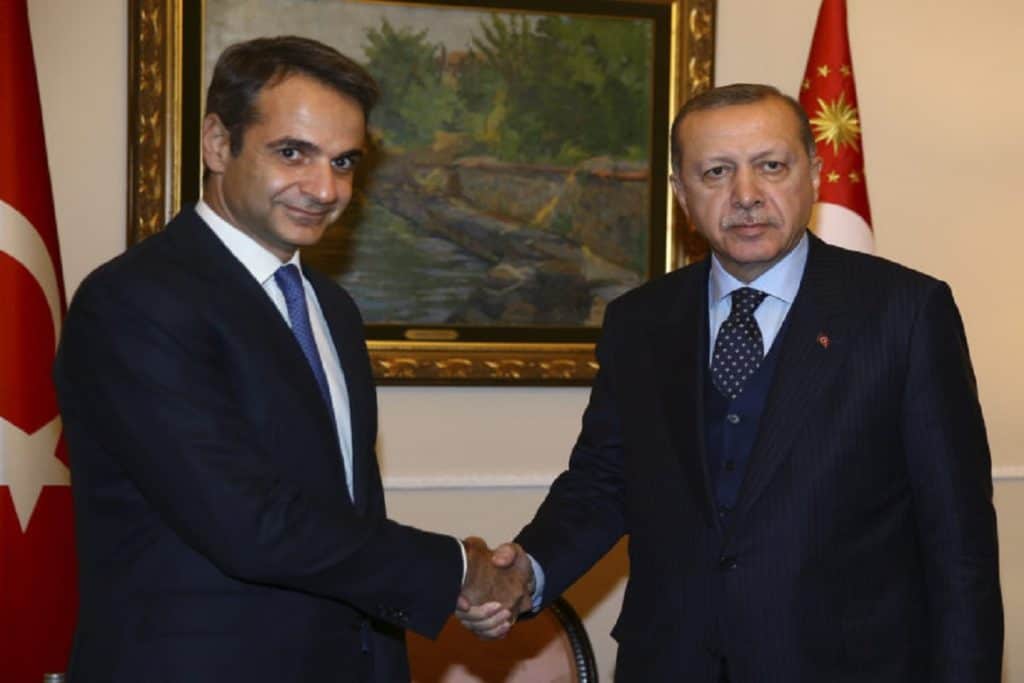By Denis Korkodinov
In connection with the formation of the new ministerial cabinet in Greece, led by Kyriakos Mitsotakis, an improvement in relations between Athens and Ankara is likely.
The new head of the Greek government began his policy by addressing Turkish President Recep Tayyip Erdogan, inviting him to sit at a common negotiating table. At the same time, Kyriakos Mitsotakis emphasized that he intends to build a dialogue with Ankara in accordance with international law, without resorting to a language of threats that could negatively affect the interests of both states. Turkey, in turn, responded in a similar way, believing that under Kyriakos Mitsotakis countries would be able to find a compromise regarding the disputed territories.
The situation in which Greece and Turkey found themselves is unique in that both states are members of the North Atlantic Alliance, but are in a state of confrontation with each other due to territorial claims in the Aegean Sea, as well as on the island of Cyprus. Meanwhile, the efforts of Athens to organize a constructive dialogue with Ankara opens a new page in relations between the countries.
Greek-Turkish cooperation in the field of economy and tourism, regardless of political differences, helps the parties finally come to the conclusion that it is necessary to resolve contentious issues.
In this regard, the official meeting of Recep Erdogan in Greece, as well as the former head of the Greek government Alexis Tsipras in Turkey are clear evidence that countries are in search of ways out of the existing crisis in relations.
Alexis Tsipras, among other things, during his tenure as the leading Prime Minister of Greece made every effort to try to reduce tensions in the Aegean. Representatives of the defense departments of both countries have repeatedly taken part in joint meetings in order to develop mechanisms to prevent conflicts in the Aegean Sea. This allows us to hope that the dispute over the maritime borders between the countries, if it is not finally resolved, will at least create conditions for ensuring mutual security.
Nevertheless, Nikos Panayotopoulos, who became the head of the Greek Ministry of Defense, apparently has some doubts about the expediency of peace with Turkey. Meanwhile, in a situation when Greek Prime Minister Kyriakos Mitsotakis, with complete unanimity with the Turkish colleagues, normalizes relations between the countries, the opposition, represented by the new head of the Greek defense ministry, will probably not last long, and under pressure from Ankara, Nikos Panayotopoulos will be forced to leave resign in the short term.
Sooner or later, Greece and Turkey will be able to agree and solve problems arising from the consumption of resources of the Aegean Sea and Cyprus. In the end, they have no other choice, since the escalation of the conflict does not meet the interests of Recep Erdogan, who already has a conflict with another NATO member – the United States, nor Kyriakos Mitsotakis, whose political future depends on his ability to solve problems with neighbors.
Meanwhile, the actions of the new head of the Greek government regarding Turkey are most likely agreed with Donald Trump. This is evidenced by the fact that at the initiative of Kyriakos Mitsotakis, on the eve of his formal investiture, Greek Foreign Minister Nikos Dendias made an official visit in Turkey, with the aim to normalize the dialogue with Ankara.
One way or another, Greece and Turkey took the first steps towards full cooperation. Regardless of what goals they pursued, renewing dialogue with each other, this can have a positive result in the sense that it will create conditions for neutralizing tensions in the Aegean Sea and Cyprus.
(The views expressed in this article belong only to the author and do not necessarily reflect the views of World Geostrategic Insights)
Image Credit: TheNationalHerald/Kayhan Ozer/Pool /AP







